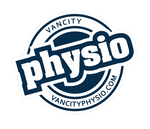Sports injury management in physiotherapy involves a comprehensive approach to preventing, assessing, treating, and rehabilitating injuries incurred during athletic activities. Here's a breakdown of the key aspects:
-
Prevention: Physiotherapists work with athletes to prevent injuries through education, training techniques, proper warm-ups, and conditioning programs. They may assess biomechanics, muscle imbalances, and other risk factors to design personalized injury prevention strategies.
-
Assessment: When an injury occurs, physiotherapists assess the extent of damage, including the type and severity of the injury. This assessment may involve physical examinations, diagnostic tests (like X-rays or MRI scans), and discussion of the athlete's symptoms and medical history.
-
Treatment: Treatment plans are tailored to the specific injury and individual needs of the athlete. Common treatments may include:
- Manual therapy: Techniques such as massage, joint mobilizations, and manipulation to reduce pain, improve mobility, and enhance healing.
- Exercise prescription: Customized exercise programs to strengthen muscles, improve flexibility, restore function, and prevent re-injury.
- Modalities: The use of modalities like ice, heat, ultrasound, electrical stimulation, and taping to manage pain, inflammation, and promote healing.
- Bracing and supports: When necessary, physiotherapists may recommend braces, supports, or orthotics to stabilize injured joints and facilitate recovery.
- Activity modification: Advising on modifications to training or competition activities to prevent exacerbation of the injury.
- Education: Providing guidance on self-care techniques, proper biomechanics, ergonomic principles, and injury prevention strategies.
-
Rehabilitation: Once the acute phase of injury management is complete, rehabilitation focuses on restoring function, strength, and mobility to pre-injury levels. This may involve progressive exercise programs, functional training, sport-specific drills, and gradual return-to-sport protocols.
-
Return to sport: Physiotherapists play a crucial role in guiding athletes through the return-to-sport process. This includes assessing readiness for competition, monitoring progress, addressing any lingering issues or imbalances, and ensuring a safe and sustainable return to full activity.
-
Long-term management: For chronic or recurrent injuries, physiotherapists may provide ongoing support, monitoring, and maintenance programs to help athletes manage their condition and minimize the risk of future injuries.
Throughout the entire process, effective communication and collaboration with other members of the healthcare team, coaches, and athletes themselves are essential for optimal outcomes.


